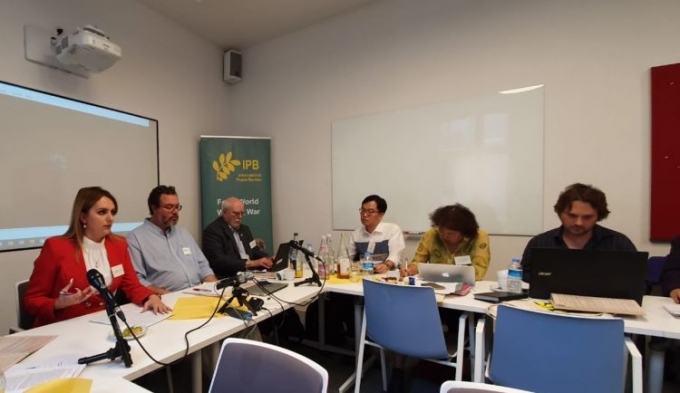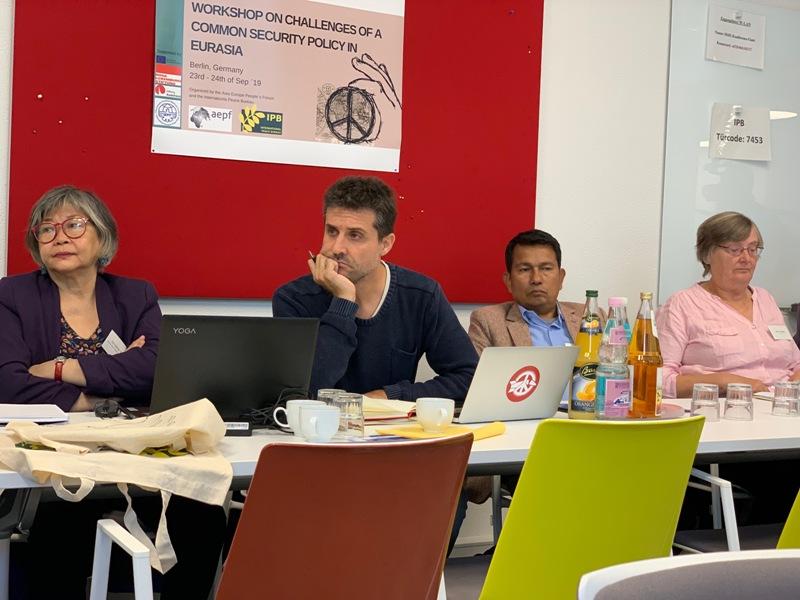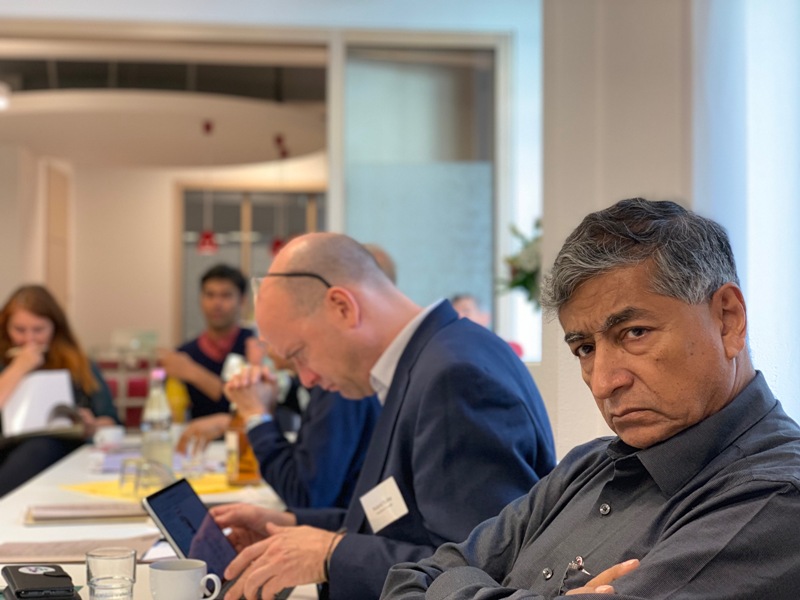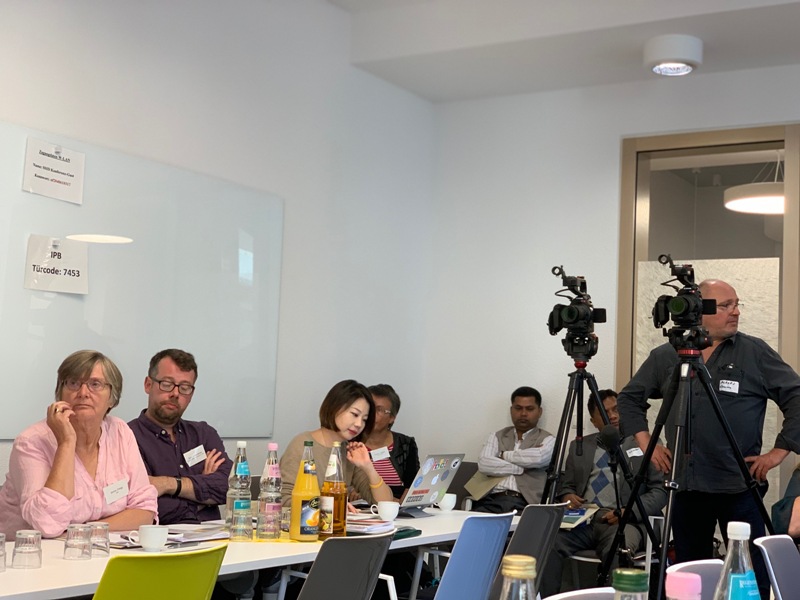On September 23-24, a workshop “Challenges of a Common Security Policy in Eurasia” is being held in Berlin, organized by the International Peace Bureau and the Asia-Europe People’s Forum (AEPF), with the support of the Rosa Luxemburg Stiftung, AsienHaus, the International Eurasia Press Fund and the European Union.
The event aims to discuss the most pressing security issues in Asia and Europe, including issues of existing conflicts, and migration.
Eurasia Diary reports that the president of the International Eurasia Press Fund, Umud Mirzayev, and political analyst, assistant to the president of the Fund, Anastasia Lavina, participated in the workshop and made a statement on Armenia’s occupation policy against Azerbaijan, which became one of the reasons for the militarization of the region.
In her speech, Anastasia Lavrina presented a statement of the International Eurasia Press Fund and raised the issue of the necessity to stop the aggressive occupational activities of Armenia against Azerbaijan.
“Probably, if the first conflicts appeared after the Soviet Union collapse, got more attention from the world community to be resolved on time, we could avoid the appearance of new conflicts. Armenia-Azerbaijan Nagorno-Karabagh resulted in occupation of 20% of Azerbaijani territories, including Nagorno-Karabakh and 7 surrounded regions almost 30 years ago. However, the unwillingness of Armenia to follow the international norms and standards, and ignorance of all resolutions that is a key point for settlement of the Armenia-Azerbaijan Nagorno-Karabakh conflict and accordingly, further sustainable and equal development of the region, provoke the situation and leads to the militarization of the region.’’
A. Lavrina also stated that the Republic of Azerbaijan has become a very important transit and logistics center in Eurasia and plays an important role in maintaining peace and stability in the region.
“Without strong diplomatic ties in the time after the Soviet Union collapse, and facing aggressive occupational policy of neighboring country, Azerbaijan has been able to become an independent government with strong economy and developed energy policy. Azerbaijan has a strong army and has the right to use its military power to get back the occupied lands, however, it supports peaceful resolution of the conflict, in comparison to Armenia, which tries to sustain offensive, aggressive and unpredictable policy.’
Immediately after the speech, the film “Shot Gravestones” prepared by the International Eurasia Press Fund with the support of the Council on State Support to Non-governmental Organizations under the President of the Republic of Azerbaijan was shown in the hall. The film shows the real acts of vandalism committed by Armenia, such as destroyed houses, monuments, as well as a shot cemetery in the village of Ashagi, Abdurahmanly, Fizuli region. The film draws a parallel between vandalism perpetrated in Azerbaijan in the late 20th century and in France in the early 20th century.
The film was authored by the president of the International Eurasia Press Fund, Umud Mirzayev, who talks about personally experienced grief.
The film made a strong impression and did not leave anyone indifferent.
It was decided that the film and the speech delivered by A. Lavrina would become publicly available on the official website of the International Peace Bureau.
The International Peace Bureau (IPB) is one of the world's oldest international peace federations. IPB was founded in 1891, and was awarded the Nobel Peace Prize in 1910 for acting "as a link between the peace societies of the various countries". 13 famous Nobel Peace Prize laureates have been members of the IPB. Today, the International Peace Bureau is dedicated to the vision of a World Without War.
The International Eurasia Press Fund has been a member of the IPB since 2001 and the IEPF president Umud Mirzayev is a member of IPB General Council and representative of IPB in 18 western Asian countries since 2013.



.jpg)



.jpeg)